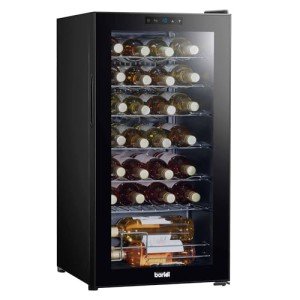A Look At The Myths And Facts Behind Fridges
The Comprehensive Guide to Refrigerators: Types, Features, and Maintenance
Fridges, commonly described as fridges, play a critical role in modern families by protecting food, decreasing waste, and keeping a comfortable living environment. These vital kitchen devices have evolved substantially for many years in regards to technology, performance, and design. This post aims to offer a comprehensive overview of the various types of fridges, their functions, and ideas for upkeep, making it an essential resource for homeowners.
Types of Refrigerators
Refrigerators come in numerous designs and configurations, each accommodating various needs and choices. Below is a summary of the most common kinds of fridges readily available on the marketplace today.
Kind of Refrigerator
Description
Top-Freezer
This is the classic fridge style where the freezer compartment is located on top. It is generally the most budget-friendly option, making it popular for budget-conscious customers.
Bottom-Freezer
In this design, the freezer is located at the bottom, permitting easy access to fresh items at eye level. This type often features pull-out drawers for much easier organization.
Side-by-Side
This design has the freezer and refrigerator compartments set up vertically beside each other. It offers simple access to both areas and often includes water and ice dispensers.
French Door
Integrating the benefits of a bottom-freezer design with broad doors on the refrigerator area, French door fridges use sufficient area and flexibility, making them ideal for big families.
Compact
Also called mini-fridges, these smaller units are best for dormitory, offices, or as secondary fridges in homes. They have actually restricted storage but are energy-efficient.
Smart Refrigerators
Geared up with clever innovation, these fridges use features such as touch screens, web connectivity, and app controls. They can offer notices for ended food and other wise performances.
Secret Features to Consider
When selecting a refrigerator, it is important to think about various features that can improve usability and efficiency. Here are some crucial features to search for:
Energy Efficiency
- Look for designs with an Energy Star ranking to ensure energy effectiveness and reduced utility bills.
Storage Options
- Adjustable shelves, door bins, and specific compartments for fruits and vegetables boost the versatility of storage.
Water and Ice Dispensers
- Numerous side-by-side and French door designs come with integrated water and ice dispensers, offering convenience and encouraging hydration.
Temperature Control
- Precise temperature level control permits house owners to set optimal conditions for different food products.
Smart Features
- Functions like touchscreen interfaces, Wi-Fi connection, and built-in electronic cameras to assist handle grocery stocks make clever fridges appealing.
Sound Levels
- Consider models with low functional sound, especially if the kitchen area is open to the living area.
Maintenance Tips for Refrigerators
Appropriate upkeep can lengthen the life of a refrigerator and guarantee ideal efficiency. Here are some beneficial upkeep suggestions:
Regular Cleaning:
- Clean the interior and exterior surfaces of the fridge with moderate soap and water at least when a month.
- Eliminate spills right away to prevent smells and germs development.
Temperature level Settings:
- Maintain your refrigerator at a temperature level in between 35 ° F to 38 ° F and the freezer at 0 ° F for optimal food conservation.
Examine Door Seals:
- Inspect the door seals regularly for fractures or tears. A malfunctioning seal can lead to energy loss and increased electrical energy costs.
Defrost Regularly:
- For manual defrost models, thaw the freezer when ice develops to reduce the home appliance's work.
Condenser Coils:
- Clean the condenser coils at the back or beneath the refrigerator every 6 months to improve performance.
Keep it Level:
- Ensure the refrigerator is level for appropriate door positioning and to avoid vibrations.
Frequently Asked Questions (FAQs)
1. The length of time should a refrigerator last?Normally, a refrigerator can last anywhere from 10 to 20 years, depending on the brand name and maintenance practices.
2. How can sheridangamlin.top enhance the energy efficiency of my refrigerator?To boost energy efficiency, keep the fridge's temperature level settings optimum, frequently clean the condenser coils, and prevent putting hot food within.
3. What kind of refrigerator is best for small cooking areas?Compact or counter-depth models are ideal for small cooking areas as they offer adequate storage without inhabiting excessive area.
4. Are wise refrigerators worth the investment?Smart refrigerators can be worth the investment if you value convenience and technology. They offer performances like inventory management and remote access, which accommodate tech-savvy users.
5. How can I repair a refrigerator that is not cooling correctly?Start by inspecting the temperature settings, ensuring the condenser coils are clean, and confirming that the door seals are intact. If these do not solve the problem, think about calling an expert service technician.
In conclusion, fridges are indispensable home appliances that play an essential role in protecting food and keeping a healthy way of life. With a variety of types and features readily available, it is essential for customers to pick a design that aligns with their specific needs. By understanding the options and sticking to upkeep best practices, house owners can delight in the benefits of their fridges for several years to come.
